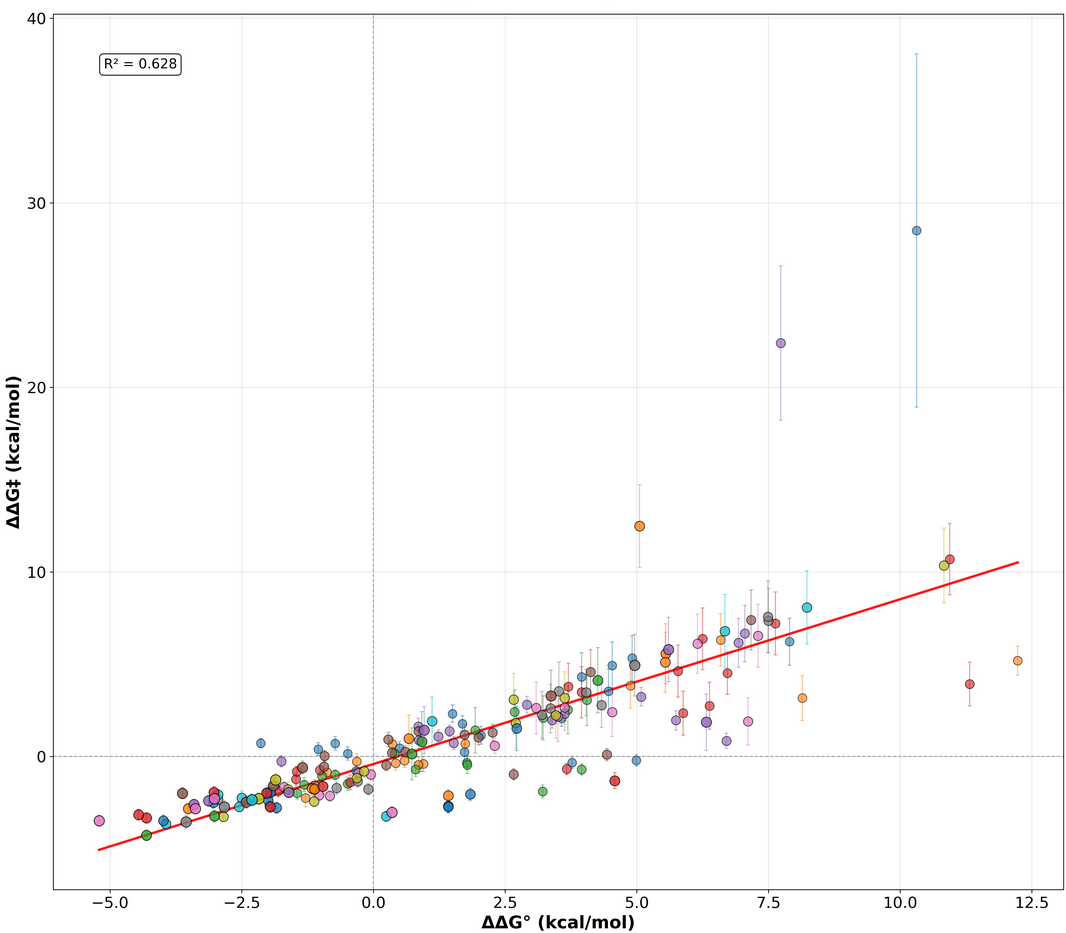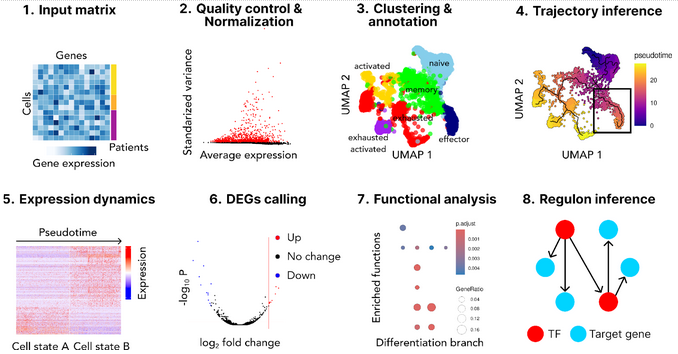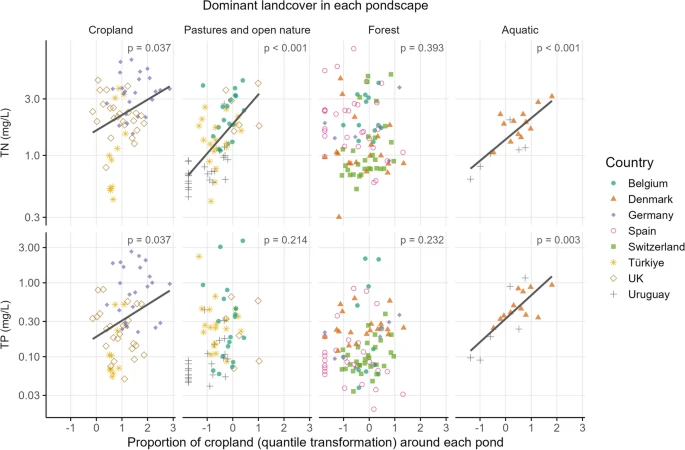The CBBL works along three main lines of research:
- Protein design
- the understanding of reactivity and protein interaction problems for specific systems of interest for our experimental partners;
- the development of new tools for drug discovery, molecular recognition and reactivity, based on extensive use of molecular simulations as well as other strtategies like ML/AI; and
- the development of new artificial enzymes, with a focus on industrial and environmental problems (bioremediation, CO2 capture, etc).

Linear Free energy Relationships (LFER) from Empirical Valence Bond simulations on the mutational landscape of Human GPX6. (Nayanika Das, unpublished) - Quantitative Biology (in collaboration with Adrián López García de Lomana)
- Analysis of transcriptomics data (bulk and single cell RNA-Seq)
- Interaction between gene and metabolic networks
- Pseudotime trajectories
- Target identification
- Gene regulatory networks
- Immunogenomics

Trascriptomics pseudotime trajectory analysis protocol. (Roger Casals, unpublished) - EcoInformatics (in collaboration with Mireia Bartrons)
- EcoGenomics
- Nutrients and pollutants effect o ponds biodiversity

Bartrons, M., Yang, J., Cuenca‑Cambronero, M. et al. Why ponds concentrate nutrients: the roles of internal features, land use, and climate. Hydrobiologia (2025).
The common focus is understanding the dynamics of biological systems, from the molecule to the ecosystem.
We look for incorporating postdocs and PhD students (available fellowships programs) of different backgrounds (biochemists with a good understanding of molecular modelling tools, physical/computational chemists, physicists, computer scientists, experimental microbiologists, system biologists specialized in networks modelling, bioinformaticians, biostatisticians, etc).
In addition, we will be happy to discuss applications of candidates that can have access to external funding (Juan de la Cierva, Beatriu de Pinós, Marie Curie, EMBO, HFSP, Fulbright and similar schemas).
In addition, the CBBL regularly accepts excellent students in Erasmus programs to complete their research project in BSc or MSc programs. Check, in particular the site of the official MSc program on Analysis of Omics Data for details. Some othe funding opportunities:
- Summer internships of the AECC
Send us your letter of interest and a CV.
Some tips for Accommodation in Vic can be found here.
